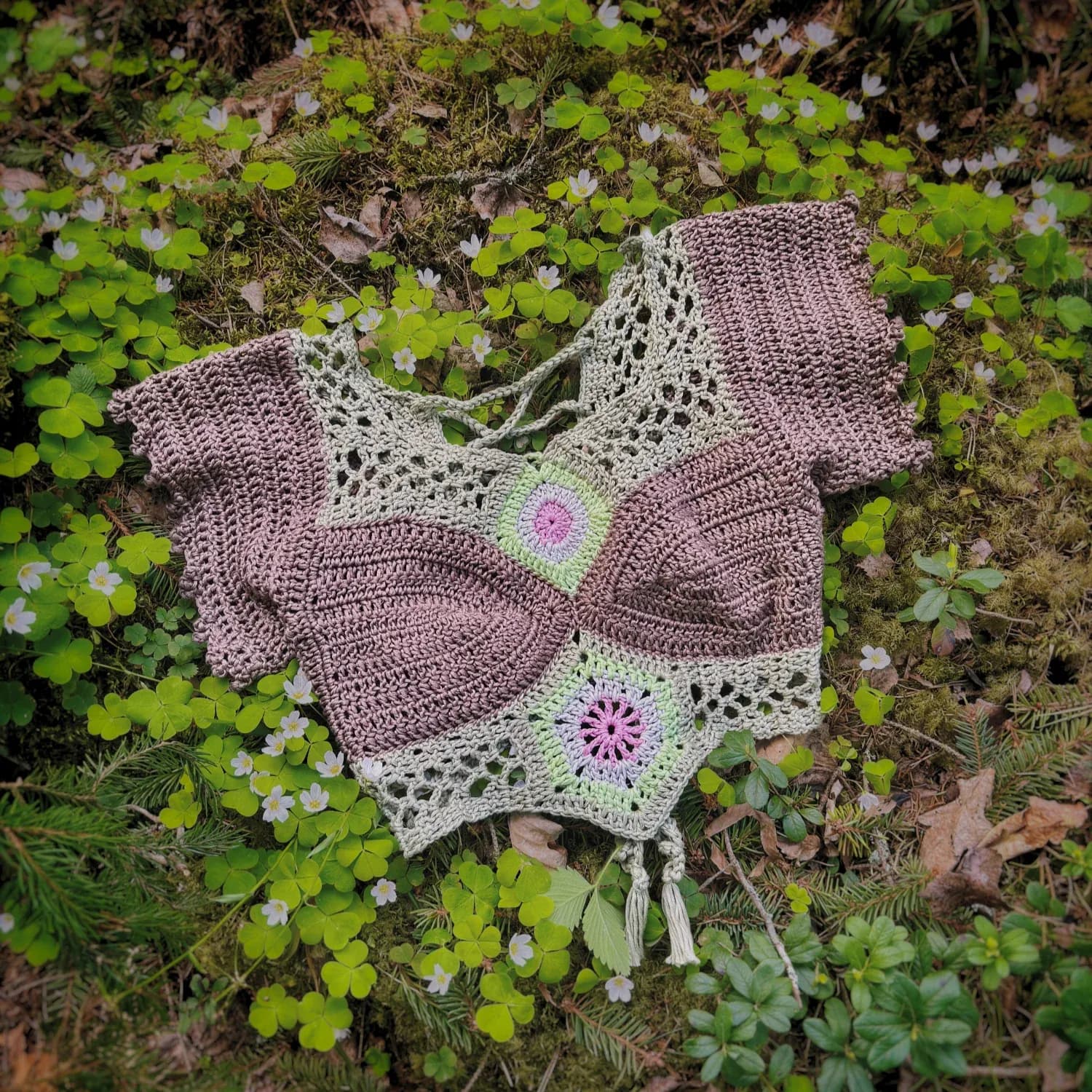Progress for 0 ad
Progress for 1 ad
Progress for 2 ad
Progress for 3 ad


Daniel Metaferiya
Addis Ababa, Ethiopia

Crochet, with its intricate loops and handcrafted charm, has long held a special place in Ethiopian culture. Passed down usually from mother to daughter, it flourished as a household art embodying patience, skill, and creative expression. From doilies that adorned living room tables to delicate baby clothes and shawls woven with familial affection, crochet has served as a binding thread across generations of households. While the rise of fast fashion and mass production nearly pushed the craft into becoming a relic of the past, a fresh wave of young entrepreneurs is weaving back crochet into contemporary circles, powered by social media.
Feven Gebrehiwot, a health professional by training, felt an urge a few years back to check if she still had the knack for a skill crafted in childhood. She dusted off an old needle, bought a pair of scissors, four yarn rolls, and tried her hand at weaving a comfy winter top. An aunt who saw the finished top two weeks later insisted on buying it. The positive feedback reinforced Feven’s intuition that there could be a way to earn a living through crochet or Dantel as it is referred to in Amharic.
“I basically started the business with 250 Birr investments,” she recalled to Shega.
Like many young entrepreneurs nowadays, Feven considered social media as the ideal vehicle to market and promote her products. Fitted with an avatar filter, she started to post videos on Telegram and Tik-Tok draped in her handmade outfits. Starting off with sweaters, her collection now features everything from full-on dresses, bags, and swimwear, all with a distinctly Ethiopian flavor. Her channel Fev’s Dantel has now over 20k loyal followers and has become the main driver of her growing business. Once customers make a down payment, half the price of the product, they will receive items within a maximum of two weeks.
“Every piece requires time and patience,” Feven says.
Recently, she has expanded her business offering to provide crocheting lessons upon customer requests on YouTube and even selling knitting equipment. She thinks crocheting would not have passed down to the current generation, had it not been for a resurgence through social media. Still, Feven feels that prevailing perceptions about locally made goods continue to affect the growing market.
“Some people equate locally made with poor quality and low prices,” she notes. “Of course, more young people are starting to value handcrafted over factory products.”
Crotchet’s resurgence in Ethiopia is reflective of a global trend as more consumers opt for eco-friendly, sustainable products with a unique look. Some estimates forecast the industry’s size to cross the $2 billion mark anytime soon. Social media is the most common marketing tool, while most of the entrepreneurs are aged between 18-34 years old.
For Feven, the business is unthinkable without TikTok. While the amount differs, nearly every purchase comes through social media. When the orders pile up, she hires two workers on a contract basis to assist. The volume of orders is tied closely to the virality of the related video and its recency. TikTok has become a powerful tool in helping small businesses scale up and increase their earnings worldwide. For many young Ethiopian entrepreneurs, it clears away high upfront costs, acts as the fastest go-to-market tool, and enables real-time customer feedback.
Melkam Semeneh was consuming several “do-it-yourself” videos on YouTube during the COVID-19 lockdowns when she stumbled upon crochet tutorials. As a recent graduate with an accounting degree that was not translating to a job, she had the time and energy to experiment. One funny-looking sweater at a time, she soon found herself getting crafty with a hooked needle.
“As soon as I became confident in my skills, I started to make videos,” Melkam says.
Surely enough, her Miss Summers TikTok page started to blow up with requests for custom designs. Melkam now has a steady stream of mostly young customers who order an item or two every couple of months, but just enough to avoid a 9-5 job.
Nowadays, dozens of content creators are featured across social media with their respective niche customer bases and design catalogues. Some have thousands of followers and a thriving business, while others cater to a smaller audience base and rely on crocheting as a lucrative side hustle. All of them still flock to markets like Mercato and Shola Gebeya to fetch the threads costing somewhere between 110-500 Birr per yarn.
The recent resurgence of crochet is indicative of a wider trend among Ethiopian youth desperate to create jobs for themselves as the formal employment market continues to constrict. Millions join the labor market annually with degrees of all sorts ill-suited to employers' demands. A select few are managing to stitch their immediate resources into entrepreneurial efforts, be it through garments, cosmetics, or the arts.
👏
😂
❤️
😲
😠

Daniel Metaferiya
Daniel Metaferiya is a writer, journalist and radio host, with a keen interest in technology. He follows developments in Ethiopia's startup ecosystem closely and is passionate about profiling unique MSMEs.
Your Email Address Will Not Be Published. Required Fields Are Marked *